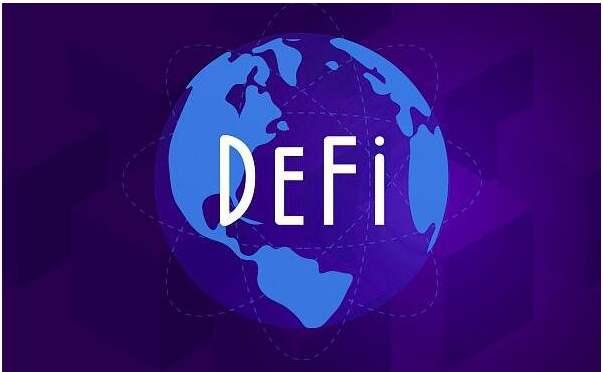The Wall Street Journal identifies Uniswap as Coinbase's biggest competitor
This article is sourced from The Wall Street Journal, compiled by Block Unicorn
DEX exchanges are peer-to-peer networks used for exchanging digital tokens. According to data provider Messari, last month, DEX transactions totaled $122 billion, compared to less than $1 billion in the same month last year.
Data from Messari shows that the largest decentralized exchange, Uniswap, had a trading volume of $36.6 billion in April, while Coinbase's trading volume was $110 billion. Hayden Adams, 27, from Brooklyn, New York, created the first version of Uniswap after being laid off as an engineer at Siemens.
Unlike traditional crypto exchanges, DEXs do not require users to hand over their digital tokens to the exchange to trade. This attracts traders who are concerned about losing their assets to hackers, who have a long history of stealing from cryptocurrency exchanges.
Decentralized exchanges do not have a central authority to decide who can trade or which tokens can be traded. Uniswap is available for trading over 30,000 unique tokens.
"It's like eBay. If you want to sell something, you can list it," said Boris Wetz, founding partner of Version One Ventures, which invested in Uniswap last year alongside one of Silicon Valley's most prominent venture capital firms, Andreessen Horowitz.
Decentralized exchanges return to the original vision of cryptocurrency as a new financial system free from the constraints of intermediaries. However, some lawyers warn that DEXs may clash with regulators.
DEXs typically lack protections against money laundering or "know your customer" measures, where exchanges verify the identity of traders through the trading platform. Former SEC lawyer Ashley Ebersole stated that this could pose risks to government authorities, especially as DEXs become more popular.
Mr. Ebersole said, "If there is a large amount of money flowing through your platform, then even if you don't ask basic questions, you don't know who is participating in those trades and where the trades are happening, regulators may face serious issues." He is a partner at Bryan Cave Leighton Paisner LLP.
There is evidence that criminals use decentralized trading platforms. According to Elliptic, after $281 million was stolen from the overseas exchange KuCoin in September, thieves used Uniswap to trade $10.5 million of the stolen coins for Ether, a key step in their efforts to launder the proceeds of the theft, according to the analytics firm.
Another analytics firm, Chainalysis, has linked the KuCoin theft to criminal groups working on behalf of the North Korean government. Mr. Adams, the creator of Uniswap, said in an interview that he "doesn't like" hackers or scammers. However, he emphasized that Uniswap is merely a protocol (a way for computers to communicate with each other) that can be used for good or evil.
He said, "It's like the internet. Good things happen on the internet, and bad things happen on the internet. The internet is this neutral infrastructure."
Moreover, because there is no central server running Uniswap, it cannot be shut down. It remains unclear how the government could require any entity to act as a gatekeeper and identity verifier for the protocol. Mr. Adams leads Uniswap Labs, the company that has developed most of Uniswap, but his team has handed over governance of the protocol to a broad user base that can vote on policy changes.

(Source: The Wall Street Journal, showing Uniswap founder)
Hayden Adams, in the Uniswap Labs office in Brooklyn, predicts that major cryptocurrency exchanges will eventually leverage Uniswap's liquidity pools.
Community members gain voting rights based on the UNI (the digital token distributed by the Uniswap team last year) they hold. The fully diluted total value of these tokens is approximately $15 billion, a figure sometimes referred to as Uniswap's valuation.
The Uniswap team has reserved about 21% of the UNI tokens, while another 18% has been allocated to investors. This means that Mr. Adams and other current and future employees of Uniswap Labs hold digital assets worth over $3 billion at today's prices, although they cannot access it yet due to a four-year vesting schedule.
A few years ago, Mr. Adams was unemployed and living in his father's house in the suburbs of New York. Recently entering the crypto space, he started a project to build a decentralized exchange based on the Ethereum blockchain network.
Inspired by a blog post from Ethereum founder Vitalik Buterin, Mr. Adams's breakthrough was designing an "automated market maker" system. These computer programs establish pools of tokens contributed by Uniswap users and determine prices using mathematical formulas based on the supply of tokens in the pool.
In exchange for posting tokens to these pools, Uniswap users earn a small portion of the value of each transaction, effectively allowing them to earn from their crypto assets. Currently, there are over 100,000 users on Uniswap acting as such "liquidity providers."
It remains unclear how significant a threat DEXs pose to centralized exchanges. One major limitation is that they can only be used for cryptocurrency-to-cryptocurrency trades, meaning investors looking to exchange dollars for digital currencies must use Coinbase or other conventional exchanges.
Nevertheless, current leaders are taking notice. Before going public last month, Coinbase listed competition from decentralized platforms as a potential business risk.
Mr. Adams predicts that large exchanges will eventually utilize Uniswap's liquidity pools, effectively becoming the front-end interface for attractive applications and websites that rely on Uniswap to drive trades behind the scenes.
To some extent, this is already happening. Coinbase's wallet service allows people to hold crypto assets and connect to Uniswap and other DEXs, enabling customers to purchase coins not available on the Coinbase exchange.
Coinbase Chief Product Officer Surojit Chatterjee stated that both centralized and decentralized exchanges have room for growth. He said, "Crypto is not a zero-sum game. We see DEXs as a way to expand opportunities for our users."



























